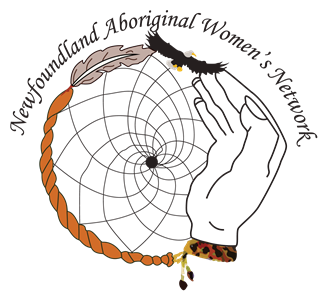Indigenous Justice Program
Gladue Writer Pilot Project
What is a Gladue report?
A Gladue report is a report prepared for sentencing, appeals, long term offender’s hearings, dangerous offender’s hearings, or parole hearings that provide the court with comprehensive information on the offender, their community, and their family and a healing and restorative justice plan as an alternative to prison time.
Do you have Gladue rights?
Yes. First Nations, Metis and Inuit who self identify, have Gladue rights. Your Gladue rights apply if you live off or on a reserve as well as in an Indigenous or in a non-Indigenous community.
Due to the R. v. Gladue decision, judges now have a duty to review information coming from a Gladue report (or made through Gladue submissions) that outlines the unique systemic or background factors which may have played a part in bringing the particular individual before the court.
The Canadian Criminal Code under s718.2(e) states “all available sanctions, other than imprisonment, that are reasonable in the circumstances and consistent with the harm done to victims or to the community should be considered for all offenders, with particular attention to the circumstances of Aboriginal offenders.”
What are Gladue factors?
Judges have a duty to apply Gladue principles, irrespective of the charge and regardless of which court the offender appears in.
This is not an exhaustive list but covers many of the most common Gladue factors:
Impacts of colonialism
Feelings of loneliness, abandonment, dislocation from culture, community, and family
Loss of access to ceremonies and healing practices
Racism and systemic discrimination
Lack of opportunity and isolation of community
Housing shortages and homelessness
Foster care, adoption, 60s scoop
Victimization/offenders of violence
Missing and murdered Indigenous women and girls
High rates of incarceration
Lower education levels or irrelevance of education
Lower-level employment, unemployment, and poverty
Fetal Alcohol Spectrum Disorder (FASD)
Substance misuse
Mental health
Frequently Asked Questions
-
Due to the R. v. Gladue decision, judges now have a duty to review information coming from a Gladue report (or made through Gladue submissions) that outline the unique background factors which may have played a part in bringing an individual before the court.
-
A Gladue report is a report prepared for sentencing, appeals, long term offender’s hearings, dangerous offender’s hearings, or parole hearings that provide the court with comprehensive information on the offender, their community, and their family and a healing and restorative justice plan as an alternative to prison time.
-
R. v. Gladue is the 1999 supreme court of Canada decision which recognized the need to deal with the crisis of exceptionally high rates of Indigenous people in jails across Canada.
-
The goal of the Gladue report is to increase rehabilitation, prevent future offences, promote community safety and prevent victimization (people being harmed). A Gladue report gives the court a complete picture of your life (timeline of events and experiences) and your unique background factors or “Gladue factors.” A Gladue report will list the possible causes of your offence cycle and set out a customized healing and restorative justice plan made with you, for you.
-
You are in control of your story. You are the one that gives permission for your Gladue report to be shared with certain people by signing our consent form. You, your lawyer, the judge, crown counsel, the reviewer, and the Gladue Manager from the Gladue Writer Pilot Project at NAWN will see your Gladue report once you have given them permission to do so.
You are in control of who reads your story, meaning you can give permission for others to read your Gladue report. This may include your probation officer or bail supervisor, correctional service of Canada staff (intake team and your case management team), Indigenous cultural liaisons and community Indigenous justice program staff that have been included in a diversion or alternative measures plan. The Gladue Writer Pilot Project staff are committed to ensuring you are in control of this process.
-
You give the writer permission to:
Communicate with your lawyer and/or crown counsel
Interview you (the client of the Gladue report)
Request records about you (eg. medical, police, corrections, legal, psychiatric, psychological, educations, social and family information, adoption records)
Interview and obtain information from your family, friends and professionals in your circle
Research your community (programs and services, and effects of colonization)
Write a Gladue report
-
The writer will go over the draft copy with you, then get your feedback and ensure accuracy. The Project Manager will then send a copy of your Gladue report to your lawyer and/or the crown counsel and the judiciary, at least one week before your hearing.
